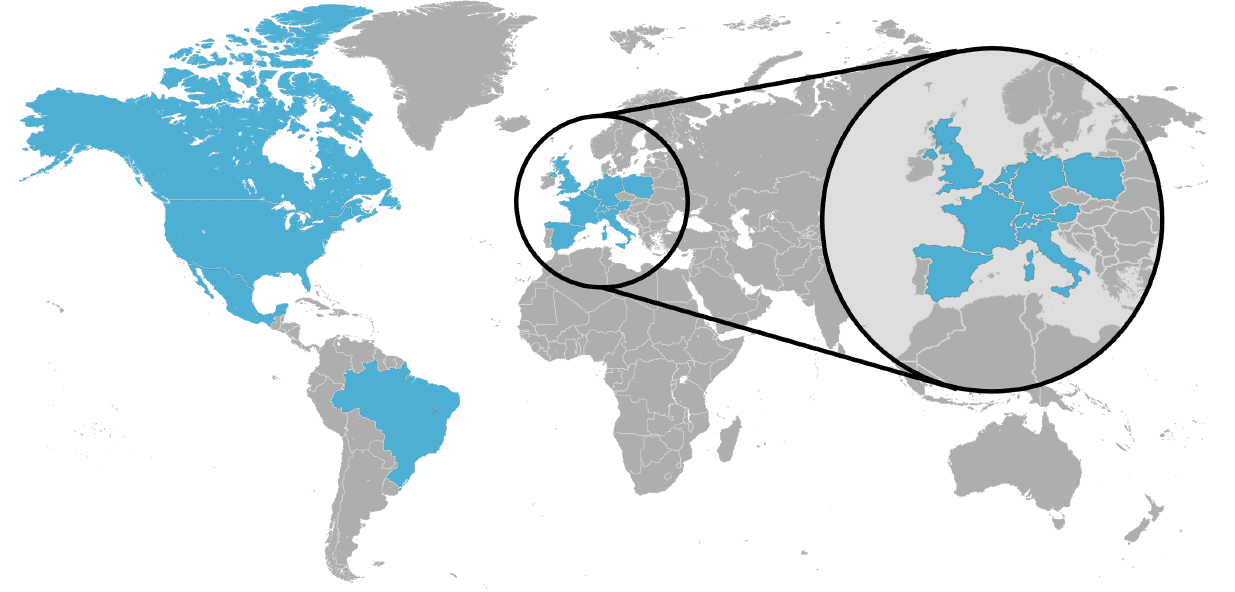Our Global Reach
SHG delivers quick and easy access to a global network of 2M Physicians, Allied Healthcare Professionals, and Patients / Caregivers across Europe, USA, Canada, and Latin America.

Physicians Globally
Allied Healthcare Professionals Globally
Patients & Caregivers

Dedicated Panel Team
Our dedicated, team of panel experts uses proven community engagement and retention practices to recruit and retain active healthcare professionals around the world. They work diligently to monitor participation rates, fill quotas and to ensure the right respondents are matched to the right types of surveys.

Compliance & Validation
SHG adheres to all healthcare industry compliance standards throughout panel recruitment, validation, privacy and security, engagement, and panel management. Our multi-verification process requires that healthcare professionals interested in participating are thoroughly validated through continuous profile updates and double opt-in registration.
Panel Book
Take a closer look at our global panel access. Download our easy-to-use HCP Panel Book to see healthcare providers within our reach broken down by:
- Country
- Specialty
- Universe
- % of reach
Therapeutic Breakdowns
Researching a specific therapeutic area or specialty? Explore our series of Therapeutic Breakdowns for detailed panel information by therapeutic area and disease.
- Total # of projects and completes for each therapeutic area
- Universe counts and reach by therapeutic areas in select countries
- Incidence rates by specific disease
- Informative facts about each therapeutic area
Global Case Study
Learn how SHG leveraged geo-location targeting for a KOL [Key Opinion Leader] mapping engagement that spanned Oncology, Cardiac Surgery, and Orthopedic Surgery categories across six different countries.
Download the case study to explore how SHG’s multi-mode strategic approach delivered all required completes within just six weeks of the initial commission.



